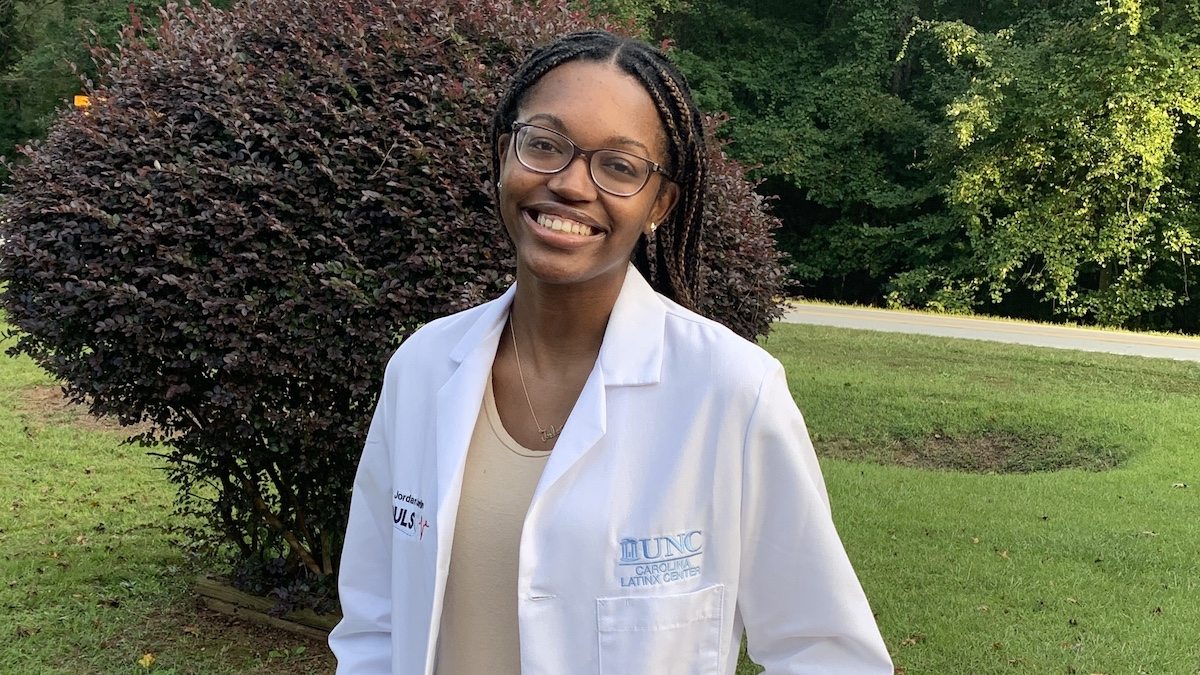The medical pipeline program aiming to diversify health care
Part of the Carolina Latinx Center, the Pulso Scholars program helps underrepresented students prepare for medical careers.

Health care isn’t one-size-fits-all. Addressing patients’ varied needs requires a diverse workforce. Yet, diversity within the medical field has not kept pace with that of the U.S. population. Although the number of medical school applications has shifted by race and sex in recent decades, statistics still show a dearth of minority students.
The Pulso Scholars, a pipeline program run through the Carolina Latinx Center, is helping shift those numbers by working closely with underrepresented undergraduate students who are interested in a medical career, be it as a doctor, nurse, dentist, public health professional or other specialist.
Pulso fosters a small cohort each year, offering Carolina students numerous opportunities to attend events, network and gain professional development — all with the goal of helping each scholar achieve their career goals.
“Pulso’s mission is to create a sense of community for Carolina students who are underrepresented in the medical or health sciences fields, and provide them with resources, events and skills that are helpful as they navigate this path, which can be challenging at times,” says Ariana Avila, student engagement graduate assistant at the Carolina Latinx Center, who is also working toward her doctorate in medical anthropology at UNC-Chapel Hill.
Since Pulso’s in-person events, like shadowing medical professionals, have been put on hold due to the pandemic, the UNC School of Medicine has invited scholars to attend virtual lectures. Avila says, “They can sit in and learn about subjects ranging from cardiology to necrology as a sophomore student, which hopefully exposes them to what it means to be in med school, what it means to be around clinicians and in that learning environment.”
Jordan Sumlin, a pre-nursing major and Pulso Scholar, wants to be a nurse practitioner to work closely with patients and offer them holistic care that considers their mental health. But her original plans went in another direction. “I first wanted to be a doctor,” the sophomore says. “I was pre-med for a month, but [Pulso] has definitely opened me up to the different pathways.”
Sumlin’s interest in medicine developed when she experienced a lack of empathy from a doctor firsthand — a byproduct, she believes, of the systemic racism embedded in the medical field. Three days before she was set to begin at Carolina, Sumlin visited her eye doctor because she was having trouble seeing out of one eye. It turns out, her retina was detached, and she needed surgery to correct the problem.
But when she met with the recommended retinal surgeon, things took a disheartening turn. “The surgeon asked, ‘What were you going to major in?’ instead of saying, ‘What are you going to major in?’ I started crying,” she says. “It felt like there was no sympathy. I hated that.” She wants to build empathy into her medical career, offering her future patients what was missing from her own care.
Avila explains, “We know within the field of medicine, there’s a disproportionate lack of Black and Indigenous and students of color. Providing this opportunity to our students, I feel like hopefully they’ll be able to be the representation in the field that maybe they didn’t have in their own experiences growing up.”
Sumlin’s story is just one example of how Pulso’s support is critical for undergraduates pursuing medical careers. “I don’t have any health care professionals in my family,” she explains, so things like applications and financing are all the more daunting. “Joining Pulso, I thought I’d get the guidance I needed, and I have.”
Most importantly, Pulso creates a sense of community among students facing similar barriers on their academic paths. “When I first started at Carolina, I had imposter syndrome, like I’m not supposed to be here or I can’t do it,” says Sumlin. “Being with other students who have also commented on their own imposter syndrome, it’s like we’re all in this together. We can do it.”
Applications for the 2021-2022 cohort are open until April 16. For students interested in applying to the Pulso Scholars Program, there’s an upcoming information session on March 3.




